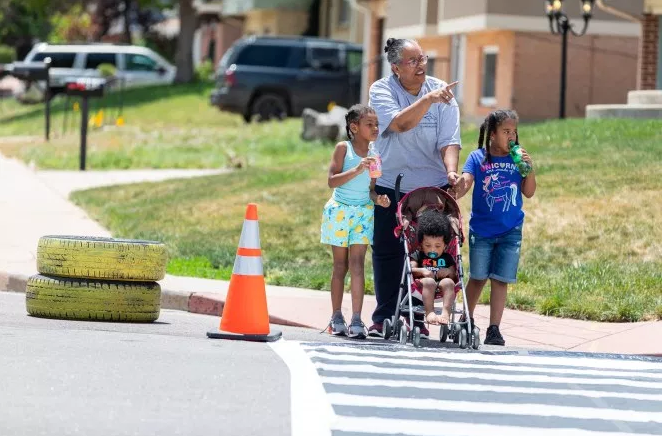He's started putting the "new" into the Green New Deal.
Massachusetts Senator Ed Markey — the veteran lawmaker who joined forces last year with freshman New York Rep. Alexandria Ocasio-Cortez in dreaming of sending America to fossil fuel rehab — is proposing that 5 percent of all federal highway funds be diverted to building "Complete Streets" that would stem the blood tide of pedestrian deaths in this country.
“When we have ‘complete streets,' we can have complete communities — comprehensive centers for employment, education, health care, civic life, and commerce," said Markey, squarely positioning the bill not only as a safety issue, but also as an economic security issue squarely in line with his and Ocasio-Cortez's Green New Deal.
"Whether you are traveling by foot, spoke, or pass, everyone deserves ‘complete streets’, and this legislation will help fund safe transportation options for the 21st century,” added Markey, later tweeting about the 35-percent increase in pedestrian deaths in the U.S. between 2008 and 2017.
Under the proposed bill, co-sponsored by Rep. Steve Cohen (D-Tenn.), states would be required to set aside 5 percent of their federal highway grants for programs that "provide safe and accessible transportation options for multiple modes of travel, as well as for people of all ages and abilities," Markey's office said in a statement.
The Markey-Cohen bill would also require grant recipients to adopt and prioritize a "Complete Streets" policy — and it would require the federal government, the states and federal "metropolitan planning organizations" to adopt design standards for all highway projects "that provide for the safe and adequate accommodation of all users of the surface transportation network, including motorized and non-motorized users, in all phases of project planning, development, and operation."
The "five percent for peds" plan could generate roughly $25 million for these pedestrian projects. It is unclear what the full impact will be; the federal government sends about $470 million in highway trust fund money to the states every year, and, according to federal documents, far more than $25 million is already being used on pedestrian projects. Federal law already allows states to use federal highway money for "bicycle transportation and pedestrian walkways ... and the modifications of public sidewalks to comply with the Americans with Disabilities Act of 1990," though the law does not mandate an amount.
Pedestrian fatalities increased by 35.4 percent between 2008 and 2017. In 2018 alone, 6,227 pedestrians were killed in motor vehicle crashes, the highest mortality rate since 1990.
“We are facing a national safety crisis,” said Cohen. “Over the past decade, this country has seen a dramatic increase in the number of pedestrians killed while walking. We need streets that can accommodate all means of transportation, from foot traffic and strollers to cars, light trucks and 18-wheelers. The grants made under the 'Complete Streets Act' will transform communities and make them safer.”
The text of the bill is here.
Pedestrian fatalities increased by 35% between 2008-2017. We need streets that can accommodate pedestrians, bicyclists, and public transit users, not just cars. My + @RepCohen’s Complete Streets Act will fund projects to make our roads/sidewalks safe and accessible for everyone.
— Ed Markey (@SenMarkey) July 10, 2019
Markey's office said the bill has the support of many advocacy groups.
“We’ve spent decades now designing our streets to move cars as quickly as possible while neglecting the safety of everyone using the street. The result? The number of people struck and killed by drivers while walking increased by 35 percent over the last decade,” Emiko Atherton, director of the National Complete Streets Coalition, said in a statement. “The federal government must take the lead on prioritizing safer streets, and the Complete Streets Act of 2019 represents the best, most direct effort yet to help states, metro areas, cities, towns and counties design and build safer, complete streets."
Ironically, supporters include app-based taxi systems that have led to a massive explosion of car traffic on many urban streets.
“Since day one, Lyft has been committed to redesigning cities around people instead of cars. This is why we focus on making car ownership optional, investing in sustainable transportation options, and partnering with like-minded organizations through the Complete Streets Coalition,” said Lauren Belive, director of Federal Government Affairs for the taxi behemoth (who surname is simply perfect for a company spokeswoman!)
Uber and Via issued similar statements of support.






